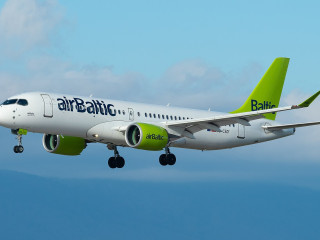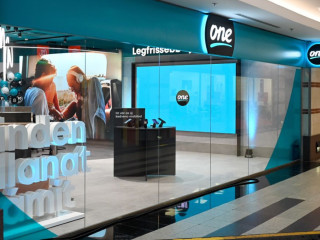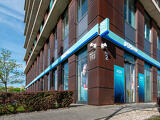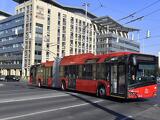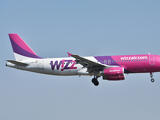A cikk magyar nyelvű változata
It was in the 'nineties that companies dealing with lorry sales started building up their service networks in Hungary. The service points that have appeared over the last decade are adequate to meet current demand. The service centres were generally located on former factory sites, with the refurbishment of existing assembly halls and vehicle pans making it possible to reduce starting costs. Other service centres were formed by the larger clients and partners of the companies. There is no need to expand the network, the future lies in the Eastern Bloc. Long term goals include the building up of service networks in Bosnia-Herzegovina and Romania, but the difficult economic conditions there make long and considered planning necessary.
The state of the Hungarian vehicle fleet is possibly too homogenous. The larger transportation companies work with very high quality vehicles, in contrast to the smaller companies, the majority of which use vehicles of over ten years. There is demand for around 1,200 tractor units annually in the over 16 ton category. A number of companies share this minuscule market. It is very difficult to tempt away a customer who is already satisfied with a given brand. In these cases an accepted solution is a price discount, which unfortunately leads to a deterioration in image, and the number of new customers gained is almost matched by the number of old ones lost. Therefore, existing relationships need to be nurtured, and the favour of upcoming companies won, explained Miklós Kovács, customer service head at Volvo.
The vehicle fleets of companies carrying out international transportation are far more modern than those of domestic transporters. This is partly because the use of old, unsound vehicles are prohibited in the European Union. The condition of goods vehicles in Hungary does not adequately reflect the laws. Environmental laws are strict here too, but they are not always adhered to, which is why older lorries still appear on the roads, we were told by Faderl Rreinhard, sales director at MAN Kft.
Companies offering transportation and logistics services are increasingly having to rely on a reliable fleet of vehicles, and - as a result - a warranty system. The mechanical and operating differences between modern lorries are extremely few, and vehicles with the desired parameters can be purchased from almost every manufacturer. This is why important considerations in selection are the services offered under warranty and the human factor. Today a two-year warranty period is general practice, and purchasers can also take advantage of new types of services. One of these is the Evergo Garantie, which is an extended warranty, covering the most important parts of the vehicle, explained Jean-Pascal Vielfaure, marketing director at Renault Trucks Hungária. An important element is the tailor-made maintenance contract, which can specify brake pad and oil changes, for example, which are then carried out for a fixed monthly fee by the company. By combining the services the transportation company can formulate an accurate budget based on the fixed monthly fee, avoiding the appearance of sudden unexpected costs.
In the experience of other companies there is no demand for maintenance contracts in Hungary for the time being. Buyers do not calculate the costs in advance, but prefer to rely on the belief that "my truck won't break down,." If, despite this, major repairs are needed, they pay the money up front, we learned from Iván Raisz, service director at MAN Kft.
An important consideration when making a service contract is to distance run by the vehicle every year, where it is used - in Hungary or abroad - and the term of the contract required by the vehicle owner. In Hungary it is mainly foreign-owned companies that use this type of service, and attitudes in this respect do not change easily, said Balázs Hajnál, works manager at Mercedes-Benz Szervíz Kft. Of course, service intervals are increasing in length, and the on-board computer informs the driver of almost everything. The Mercedes-Benz Flexible Service System (FSS), continuously monitors the wear on vehicle components, the number of engine starts and gearchanges. This makes it possible to determine the precise intervals for servicing and oil changes. The instruments can also make predictions using existing data, and taking into account wear, with which fleet managers can plan the routes taken by the lorries.
A basic service is the 24-hour recovery service, which every large lorry dealer has built up. Upon purchasing the vehicle the owner receives a card with the telephone numbers of the recovery service. Upon calling this number the nearest service centre is alerted, and comes to the assistance of the vehicle, both at home and in Europe.
Improvements in technology are stretching the service intervals, and today routine maintenance only needs to be carried out at intervals of 60-100,000 kilometres. but costs can be reduced using on-board computers. These devices show whether the driver is making best use of the vehicle, and is not overburdening the engine. It can measure the economy of the vehicle perfectly. This device is called InfoMax at Renault, noted Vielfaure. If required, the companies offer training courses after the sales of tractor units. The drivers learn to read the information provided by the computer, which helps them decide whether to continue the journey or stop in any given situation. On the basis of information dictated to recovery services the breakdown engineer can prepare or arrange for towing where necessary. The evaluated and stored data can also be used by fleet management for its own goals, and the performance of drivers evaluated. The comparison and analysis of data (such as component wear) can help ensure that only the best drivers are employed. Training can take place at a training centre or during use as required by the customer. Naturally, it is not only the buyers that receive training, the employees of the company also continuously learn about the new techniques and machinery. Studies are made to determine which specialised areas show the need for further training, and education is organised on this basis.
Transportation has reached the level today where even the smallest amount of down time is a luxury nobody can afford. Mercedes-Benz has solved this problem by creating an on-line link between its central warehouse in Budapest and it warehouse in Salzburg. Mercedes makes daily journeys with its own lorry, to bring the required spare parts. The stock turnover indicator at this warehouse is 8.2, stated Balázs.
Another tactic is to have smaller warehouse stocks, but a computer ordering system which ensures that all parts arrive at the workshop within 24 hours. This does not represent any extra waiting time for the owner of the tractor unit. In this warehouse a top-up ordering system is used to ensure the supply of products with a high turnover, while items not held in stock are ordered on a daily basis. The stock turnover indicator is between 5-6, said Miklós Kovács.
The lorry market does not depend on gleaming vehicles displayed in gleaming salons. The only ones who can survive on this market are those with a European-standard service network, ever improving services, which they continuously change to keep up with the demands of their clients.
Service networks look to the east
It was in the 'nineties that companies dealing with lorry sales started building up their service networks in Hungary. The service points that have appeared over the last decade are adequate to meet current demand. The service centres were generally located on former factory sites, with the refurbishment of existing assembly halls and vehicle pans making it possible to reduce starting costs. Other service centres were formed by the larger clients and partners of the companies. There is no need to expand the network, the future lies in the Eastern Bloc. Long term goals include the building up of service networks in Bosnia-Herzegovina and Romania, but the difficult economic conditions there make long and considered planning necessary.


